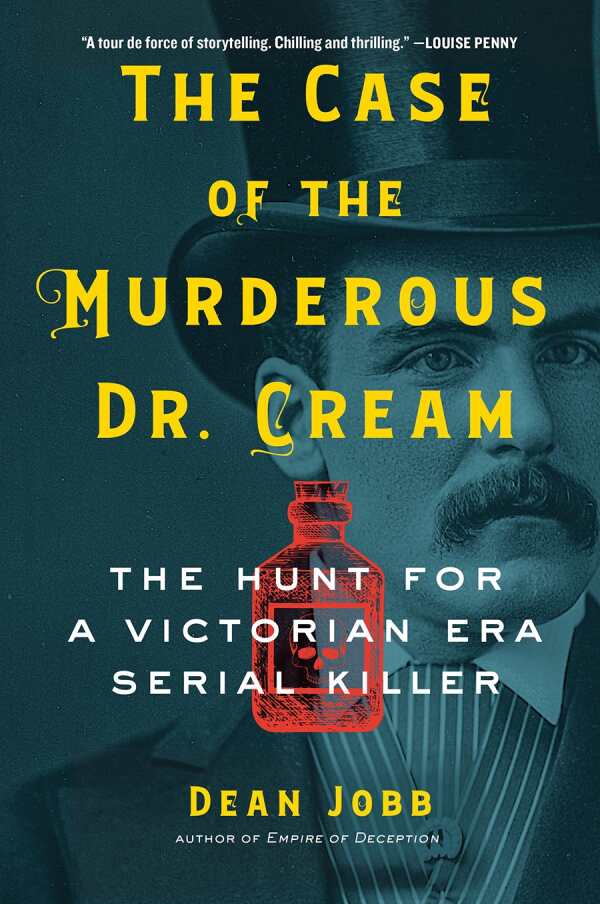The Case of the Murderous Dr. Cream
The Hunt for a Victorian Era Serial Killer
Dean Jobb’s engrossing true crime text, The Case of the Murderous Dr. Cream, concerns the exploits of Thomas Cream, a notorious nineteenth-century killer who poisoned ten people as London perched on the edge of the modern age.
Peppered with illustrations, photographs, and testimonies taken from trials and newspapers, the book follows Cream’s grim trail of death from his hometown, Quebec City, to his stint as an illegal abortionist in Chicago. Cream landed in London, where he murdered prostitutes and sent telegrams to the police, imploring them to solve his crimes. The social currents that shaped the era, including the difficult lives of the lower class women whom Cream preyed upon, are touched upon, as is the public’s burgeoning fascination with serial killers and detectives, credited to the contemporaneous appearances of Jack the Ripper and Arthur Conan Doyle’s Sherlock Holmes stories.
With plentiful insights into why the authorities were slow to focus on Cream’s crimes, the book shows police departments and coroners jockeying for control over murder investigations. In the process, crucial evidence went unnoticed, and witnesses were declared unreliable, or were dismissed as unworthy by the police. In one tragic episode, Cream was convicted of murder in Chicago, but was pardoned thanks to a $5,000 payoff, resulting in a half-dozen more victims.
The book also singles out heroes on the side of justice, like physician Thomas Stevenson, whose toxicological studies of Cream’s poisons foreshadowed the criminal forensic science of today’s CSI units, and Frederick Smith Jarvis, the dogged British inspector who traversed Canada and the US to connect the dots of Cream’s murderous past with his present. The result is an informative and entertaining true crime text.
Reviewed by
Ho Lin
Disclosure: This article is not an endorsement, but a review. The publisher of this book provided free copies of the book to have their book reviewed by a professional reviewer. No fee was paid by the publisher for this review. Foreword Reviews only recommends books that we love. Foreword Magazine, Inc. is disclosing this in accordance with the Federal Trade Commission’s 16 CFR, Part 255.

